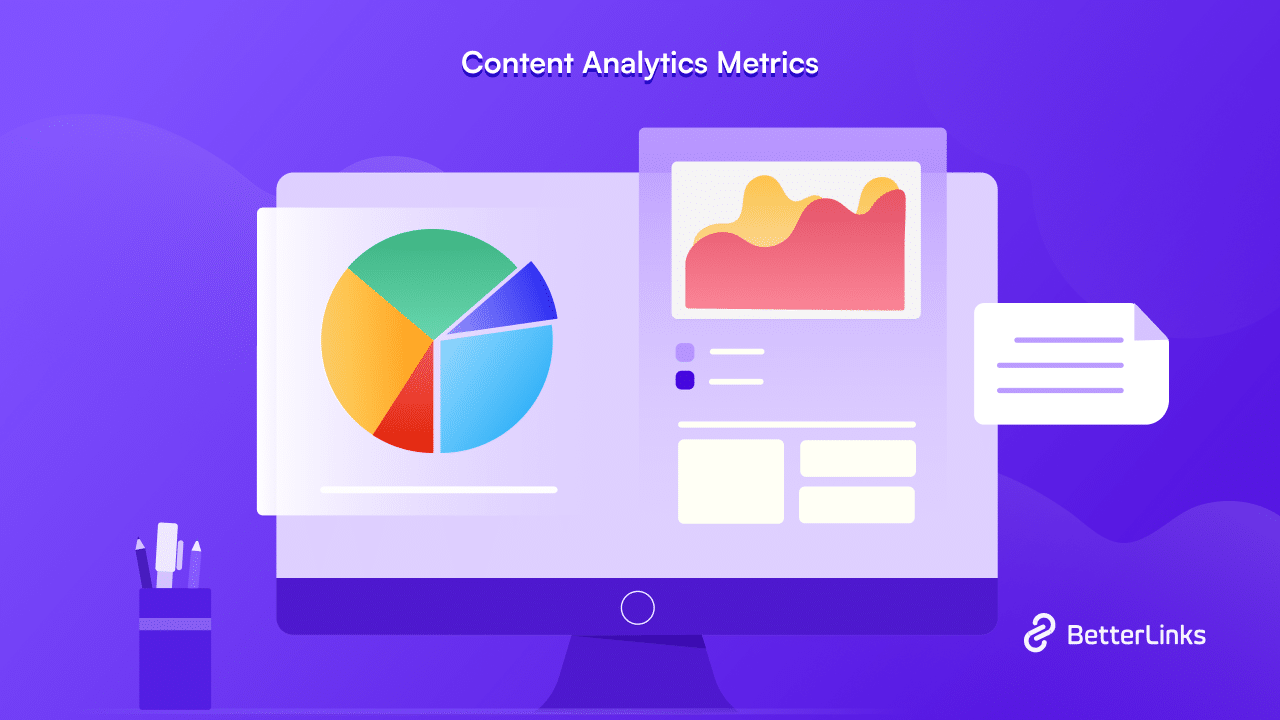Whether you are a marketer, blogger, or business owner, you most likely need to invest a significant amount of time and effort into creating content for your website or social media channels. However, how can you know if your content is successfully reaching your target audience and producing the expected outcomes? This is exactly where content analytics metrics come into play.

Unlocking The Top 15 Content Analytics Metrics To Monitor In 2026
Content analytics allow you to gain insights into how your content is performing, helping you make informed decisions to improve your content strategy for further engagement and conversions. But in the pool of countless metrics, how would you know which ones are crucial to achieving your targets and business goals? Well, to help you get started, we have compiled a list of 15 content analytics metrics to monitor for 2026:
Page Views:
This statistic provides you with the number of times a particular page on your website has been viewed. It is a basic indicator of page popularity overall and can assist you in determining the most popular content.
Unique Visitors:

The quantity of unique people that have viewed your content is indicated by the term “unique visitors.” It is critical for determining the size of your audience because it separates unique visitors from those who return.
Bounce Rate:
A high bounce rate indicates that users are clicking off of your page without continuing to interact. This can mean that the information on your landing page or content doesn’t match their requirements or expectations. A lower bounce rate often means that users are staying on your site longer and finding value from it.
Time On Page:
This indicator shows the average length of time visitors spend on your page. Longer durations frequently denote engagement and imply that users are reading or interacting with your material for extended periods.
Backlink Performance:
Backlinks are links from external websites to your content. Analyzing backlinks can help you understand their quality and quantity, which indirectly impacts your content’s visibility, SEO performance, traffic, and content promotion. While not direct content analytics metrics, backlinks play a crucial role in content marketing and can be monitored using SEO tools.
Click-Through Rate (CTR):

The percentage of visitors to your content who click on a particular link or call-to-action (CTA) is measured by CTR. It is especially helpful for monitoring how well your calls to action (CTAs), which include downloads, connections to other pages, or products, are working.
Conversion Rate:
The percentage of website visitors that complete a desired activity, whether making a purchase, subscribing to a newsletter, or filling out a form, is known as the conversion rate. It’s an essential indicator for assessing how well your website is accomplishing its objectives.
Exit Pages:
You can improve your user experience or content by finding the pages of your website that people leave. Reducing drop-offs and making changes are possible with the use of this data.
Referral Sources:
Your marketing efforts can benefit from knowing where your visitors are coming from, whether it is social media, search engines, or other websites. You can concentrate your marketing efforts on the channels that generate the greatest traffic with the use of this content analytics metric.
Social Shares:
The number of times people have shared your material on social media. This measure can show how well-liked and viral your work is, as well as how well it can spread to more people by analyzing content analytics metrics.
Comments And Engagement:

Keep an eye on the interactions and comments on your content; they might offer insightful information about how your target audience is feeling about it. It also gives you a chance to interact directly with your guests.
Scroll Depth:
You can assess a visitor’s involvement by tracking how far down they scroll on your website. More substantial interest in your topic is indicated by deeper scrolling.
Keyword Performance:
By examining which keywords generate organic traffic and conversions, you can make your content strategy more effective. You can concentrate on the keywords that drive the most traffic to your website.
Device And Browser Usage:
To ensure compatibility and responsiveness, it is critical to find out what hardware and browsers your target audience uses. It assists you in making your website optimized for the platforms and devices that your target audience uses.
Geographic Location:
You can more effectively adapt your material to your audience’s tastes and time zones by knowing where they are. It is especially beneficial if your audience is global.
Explore The Top Content Metrics & Boost Website Engagement!
These metrics collectively offer a comprehensive view of how your website is performing and can guide your efforts to improve user experience, content quality, and overall website effectiveness. By consistently monitoring these content analytics metrics, you can refine your content strategy, boost engagement, and achieve your desired goals. Tools like Google Analytics, Adobe Analytics, and various social media analytics platforms can help you collect and analyze this valuable data.
Remember that content analytics isn’t a one-size-fits-all solution. The importance of each metric can vary depending on your specific goals and the type of content you produce. Regularly reviewing and adapting your content strategy based on these insights will ensure that your content remains relevant and effective.
Content analytics metrics play a pivotal role in your content marketing efforts. By keeping a watchful eye on these 15 key content analytics metrics, you can make data-driven decisions that will help your content succeed in the competitive digital world.
Hope you find this helpful, and feel free to share your thoughts with us by commenting below. If you want to read more exciting content like this, subscribe to our blog page and join our Facebook community to get along with all WordPress experts.




